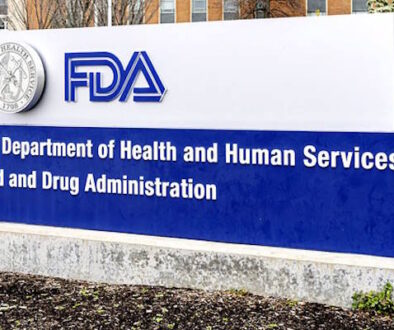Multiple Resources On How To Get A COVID-19 Vaccine Exemption
💨 Get to this page quickly by typing https://fearunmasked.com/exemption
There are many resources to assist you in your fight against mandated shots. The primary reasons for rejecting the “vaccines” are based on medical and religious beliefs.
Religious Exemption
Probably the easiest and most widely used source of justification of opting out is declaring your religious beliefs do not allow receiving the vaccination. This right is outlined in the EEOC (Equal Employment Opportunity Commission) publication, “What You Should Know About COVID-19 and the ADA, the Rehabilitation Act, and Other EEO Laws.” The section you are looking for is entitled, Title VII and COVID-19 Vaccinations, which is located in section K.12 as of this article date. This explanation moves around a bit (it was in section K.6 before), so if you don’t see it, just look for the same text in that publication.
As this document changes from time to time, we have excerpted the relevant section here. As you can see, once an employer has been told about your religious belief against the vaccine, the employer must provide a reasonable accommodation unless it would pose an undue hardship.
Title VII and COVID-19 Vaccinations
K.12. Under Title VII, how should an employer respond to an employee who communicates that he or she is unable to be vaccinated for COVID-19 (or provide documentation or other confirmation of vaccination) because of a sincerely held religious belief, practice, or observance? (12/16/20, updated 5/28/21)
Once an employer is on notice that an employee’s sincerely held religious belief, practice, or observance prevents the employee from getting a COVID-19 vaccine, the employer must provide a reasonable accommodation unless it would pose an undue hardship. Employers also may receive religious accommodation requests from individuals who wish to wait until an alternative version or specific brand of COVID-19 vaccine is available to the employee. Such requests should be processed according to the same standards that apply to other accommodation requests.
EEOC guidance explains that the definition of religion is broad and protects beliefs, practices, and observances with which the employer may be unfamiliar. Therefore, the employer should ordinarily assume that an employee’s request for religious accommodation is based on a sincerely held religious belief, practice, or observance. However, if an employee requests a religious accommodation, and an employer is aware of facts that provide an objective basis for questioning either the religious nature or the sincerity of a particular belief, practice, or observance, the employer would be justified in requesting additional supporting information. See also 29 CFR 1605.
Under Title VII, an employer should thoroughly consider all possible reasonable accommodations, including telework and reassignment. For suggestions about types of reasonable accommodation for unvaccinated employees, see question and answer K.6., above. In many circumstances, it may be possible to accommodate those seeking reasonable accommodations for their religious beliefs, practices, or observances.
Under Title VII, courts define “undue hardship” as having more than minimal cost or burden on the employer. This is an easier standard for employers to meet than the ADA’s undue hardship standard, which applies to requests for accommodations due to a disability. Considerations relevant to undue hardship can include, among other things, the proportion of employees in the workplace who already are partially or fully vaccinated against COVID-19 and the extent of employee contact with non-employees, whose vaccination status could be unknown or who may be ineligible for the vaccine. Ultimately, if an employee cannot be accommodated, employers should determine if any other rights apply under the EEO laws or other federal, state, and local authorities before taking adverse employment action against an unvaccinated employee.
You should define your religious reasons for rejecting the vaccine, but the most common ones involve the inclusion of fetal cells in the development of the vaccines (documented here, here, here, here and here):
- Pfizer and Moderna performed confirmation tests (to ensure the vaccines work) using fetal cell lines
- Johnson & Johnson uses fetal cell lines in vaccine development, confirmation and production
Other reasons can include the fact that people have recovered from COVID due to healthy immune systems that God has given them, and they are themselves protected from getting COVID due to natural immunity, and a reliance upon God’s protection consistent with Psalm 91. Others have prayed and asked God whether they should get the COVID shot and have received a clear word from the Lord in their spirits that they must not get the shot.
A pastor verification letter is beneficial to proving the sincerity of the belief, but it is not legally required. It is nonetheless very helpful in substantiating a claim that one’s belief is religious in nature, and that it is sincere.
Past vaccinations do not negate a present or future right to declare exemption. Courts recognize that people can change and grow in their beliefs and understandings. Just because you received a vaccination in the past does not eliminate your right to assert a religious exemption now or in the future.
Once an employer determines that a true religious exemption exists, the employer must make an accommodation for the employee. Such accommodations may include substituting a mask requirement, modifying work duties to comply with social distancing, adjusting an employee’s schedule, or allowing an employee work from home.
Medical Exemption
Some individuals may have medical reasons which prevent them from getting a vaccine. Medical exemptions may include allergies to vaccine components, a history of Guillain-Barré syndrome, or other health ailments that make the vaccine risky for the individual.
Recently, some individuals have displayed a highly allergic reaction to a COVID-19 vaccine, and the medical guidance has since changed for individuals with severe allergies. If an individual claims a medical basis for requesting an exemption from a vaccine requirement, an employer may request that the employee provide a physician’s note.
If an individual raises a medical basis for an exemption, the employer is required to follow the interactive process outlined by the Americans with Disabilities Act (ADA). Employers must determine if the employee has a qualifying disability under the ADA and if an alternative accommodation can be offered.
Sample Religious Exemption Forms & How to Get Legal Help
Feel free to use our sample forms as is or reword based on your own beliefs:
- Personal Statement based on the New Testament
- Reason for Religious Exemption from an Orthodox Old Testament and New Testament Exegesis (Bishop Leon Benjamin, Senior Pastor, New Life Harvest Church)
- Roman Catholic Objection to Vaccine (Most Reverend Joseph E. Strickland, Tyler, TX)
- Personal Statement based upon Judaism
Liberty Counsel
You can seek specific assistance from Liberty Counsel if the employer or institution rejects the request.
- Sample Religious Exemption Letter
- Know Your Rights (Legal Memo)
- Legal Help For Religious Exemptions From Vaccinations
- Legal Help Form
- Email Liberty@lc.org
- Call 407-875-1776
Other Sample Forms and Resources
America’s Frontline Doctors (AFLDS)
They offer an assortment of different forms, some of which are duplicated here.
Gab.com
The new social media site offers several sample religious exemption documents.
KrisAnne Hall
President of Liberty First University and author of six books on the Constitution and Bill of Rights, KrisAnne also has a nationally syndicated radio show and a cable television show. Check out her Right To Refuse – Memorandum of Law page for legal reasons you can declare an exemption and download her memorandum of law form.
Freedom of Religion – United Solutions
This non-profit has targeted exemption forms in Microsoft Word format for school & college, employees, entry into business, medical procedures, domestic travel and Spanish.
TheHealthyAmerican.org
Peggy Hall has multiple videos and guides at https://www.thehealthyamerican.org/vaccines and https://www.thehealthyamerican.org/religious-exemption-letter. She offers a service to write you exemption letters for a fee.
United States Military
There is a common vaccination policy, Immunizations and Chemoprophylaxis for the Prevention of Infectious Diseases, shared across all branches of military service (Army, Navy & Marines, Air Force, Coast Guard), and it provides a medical exemption based on previous infection. See page 6, 2-6 Exemptions, (b) Evidence of immunity based on serologic tests, documented infection, or similar circumstances.
Note: We have no affiliation nor partnership with either of these resources. They are listed here for your assistance; you assume all risk in using their documents, services or advice. We assume no liability in how you apply or fail to apply any content listed on this page or any page on this website.
Sources:
https://www.eeoc.gov/wysk/what-you-should-know-about-covid-19-and-ada-rehabilitation-act-and-other-eeo-laws
https://lifefacts.lifesitenews.com/covid-19/covid-19-vaccine
https://www.prinz-lawfirm.com/our-blog/2020/december/the-covid-19-vaccine-is-here-a-look-at-religious




